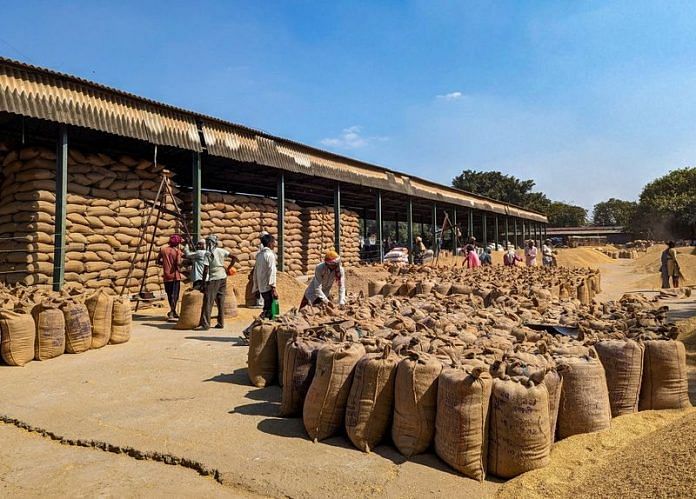By Mayank Bhardwaj and Rajendra Jadhav
NEW DELHI (Reuters) – India has removed the floor price for the export of non-basmati white rice, the government said in an official order on Wednesday, to help farmers and exporters sell various grades of rice on the world market.
Buoyed by forecasts of higher rice output, farmers and rice exporters recently urged the government to remove the floor price for non-basmati white rice exports that was imposed partly to ensure security of supply.
Last month, India gave the go ahead for exports of non-basmati white rice to resume. But New Delhi set a floor price for non-basmati white rice exports at $490 a metric ton.
Higher rice shipments from India, the world’s biggest rice exporter, would bolster global supplies and soften international prices by forcing other major exporters – such as Pakistan, Thailand and Vietnam – to reduce their rates, trade and industry officials said.
Because of the floor price, Indian farmers and exporters were prohibited from selling some relatively cheaper grades on the world market, said Dev Garg, vice-president of the Indian Rice Exporters Federation.
“With today’s decision, there is no such restriction now,” Garg said.
Indian supplies will be more competitive as India can offer its 5% broken white rice at around $460 per metric ton, said B.V. Krishna Rao, president of the Rice Exporters’ Association.
India will be able to sell 25% broken white rice, which is usually offered at a sharp discount to 5% broken rice and sought by some African countries, traders said.
On Tuesday, India scrapped the export tax on parboiled rice, as inventories surged and the country is set to produce a bumper crop after copious monsoon rains.
When the El Nino weather pattern in 2023 raised the prospect of poor monsoon rains, India imposed various curbs on rice exports and extended them into 2024 to keep local prices in check ahead of the April-June national election.
Since the 2023 export restrictions, local supplies have picked up, bumping up stocks at government warehouses.
(Reporting by Mayank Bhardwaj and Rajendra Jadhav; Editing by David Goodman and Jane Merriman)
Disclaimer: This report is auto generated from the Reuters news service. ThePrint holds no responsibilty for its content.



